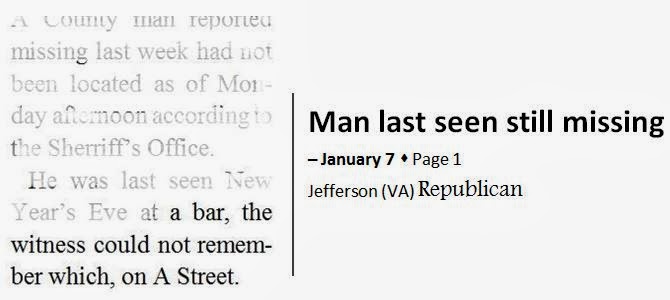January 9, 2011
John, Jesus, a dove, God
I think of myself as a believer,
though not by anyone else’s standards. Too
easily confused; too easy with confusion.
This week it’s Matthew’s gospel - this story of Jesus’ baptism by John,
in which John, Matthew, and God all cite Scripture. God cites Scripture!
You
know the story, and if you don’t you can look it up (3:1-17). If you can’t look it up, click here. Key “Matthew 3:1-17” into the search
box. Choose from 181 versions in 71 languages;
ignore everything else on the page.
John has come to the Jordan River
preaching repentance, and the people are coming from everywhere to hear him,
“Jerusalem and all Judea and all the region about the Jordan,” coming
to be washed in the river, “confessing their sins.” John has come to the Jordan himself because
“Isaiah ’twas foretold it,” so the evangelist tells us, but Isaiah seems to
omit that people would rush to the river after him, to hear him shame them in
the basest terms: “You dead-wood about to be chopped up for kindling, you
nest of vipers about to be smoked out of your holes to writhe in the
flames.” They don’t take the warning; they run out to
his rankle as to see a burning-down house.
They can’t get too close to the fire.
Then,
it comes. Jesus, the fire himself; or at
least the one with pitchfork in his hand, to gather up the ashes, bone, dung
and throw it into the devil’s hopper. So
says John, who will afterward be sorely disappointed. (See chapter 11.) So they have come, Jerusalem and all Judea
and the region beyond the length of the Jordan River, even as far as Galilee. Even Jesus comes to see John and to be
baptized by him.
“John
would have prevented it,” Matthew says, because Jesus is greater than he
is. (Not because Jesus doesn’t need to
be baptized. Nowhere does Matthew say
that; nowhere does Matthew say that Jesus
was without sin to confess. Matthew does
say he came to forgive sins. He is the
Messiah, son of David.)
But
this Jesus is not only (if also not literally) a son of David but the son of God. So the heavens must open and the spirit-dove
descend (the Spirit-dove [1] ),
and God Godself announce, “This is my beloved Son.” God is citing Scripture, so my books tell me,
but also mixing it up – Isaiah again, and the Psalms. Not necessarily mixing it up in the sense of
confusing it but mixing it up like a boxer: one . . . two – a left jab from the
Psalms . . . a right cross from Isaiah.
The reader is punch-drunk until the dove comes in with the smelling
salts to clear his head. And he comes to
but dazed by this idea that God is sampling Scripture rather than the reverse.
Jesus
demurs, saying to the hesitant John, No, let it go forward. “Let it be so for now; for
thus it is fitting for all righteousness.” Whatever that means(?), it mollifies
John. “All righteousness” is a term he’d
like to think he’s a part of. They go
down into the water, and John washes Jesus in the Jordan.
Jesus
springs up and runs out of the water (3:16a).
He rushes into the opening heavens, the warm wind from the wings of the
dove, the . . . voice: “This is my beloved Son.” The voice of God citing the psalms and the
prophet. So now, who can doubt? No one, for everyone is there, Jerusalem and
all Judea. Who can doubt? But they
do. The voice of God, even waving his
Bible, is only as convincing as the prophets’.
[1]
Note that “dove” is lower case. See Thomas Aquinas’ explanation of how it is
that God is incarnate in man but not in bird: Summa theologica I, Q. 43, Art. 36; - Whether It Is Fitting for
the Holy Ghost to Be Sent Visibly. Reply
to Objection 1: “The Son assumed the visible creature, wherein He appeared unto
the unity of His person, so that whatever can be said of that creature can be
said of the Son of God . . . . But the
Holy Ghost did not assume the visible creature, in which He appeared, into the unity
of His person; so that what is said of it cannot be predicated of Him.” .
Pigeons, of course, have a different story.

No comments:
Post a Comment